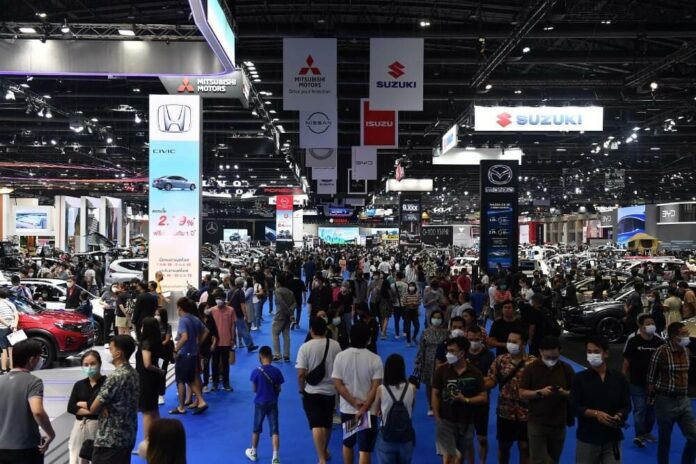Hozon New Energy Automobile Co, a Chinese manufacturer operating as Neta Auto, has set a target to double its electric vehicle (EV) sales in Thailand to 30,000 units this year. The announcement was made during last month’s Bangkok International Motor Show.
The company’s swift rise in popularity in Thailand, a market previously dominated by legacy automakers, is a testament to Chinese carmakers’ pivotal role in emerging markets.
China’s automakers offer a wide range of affordable EV options, essentially becoming the only viable option for many consumers. Traditional automakers such as Toyota Motor Corp and Nissan Motor Co., cannot compete with the variety and price points of Chinese EVs. The cheapest EV hatchback from BYD, China’s market leader, is priced around US$10,000.
The rise in Chinese EVs threatens the long-standing dominance of Japanese carmakers, including Toyota and Isuzu Motors Ltd, in the Thai market. Last year, Japanese automakers’ market share in Thailand fell below 80%, a significant drop from previous years. The increased demand for EVs from companies like Hozon underscores the urgency of this shift.
Wang Chengjie, Vice President of Hozon, does not foresee a wait of five years to double the output of the company’s new Thai factory, capable of producing 20,000 Netas annually.
“It will come true very soon.”
EV sales
In the context of Thailand’s yearly vehicle sales, which is approximately 800,000, the planned production is a significant figure. EV sales in Thailand have seen a substantial increase, growing from less than 10,000 to about 76,000 last year.
Tatsuo Yoshida, senior auto analyst at Bloomberg Intelligence, noted that Chinese brands now constitute 10% of the entire market.
The situation in Thailand is potentially an indicator of future trends in Indonesia and other Southeast Asian countries, where Japanese brands have traditionally held sway. According to the Japan External Trade Organisation (JETRO), new vehicle sales and registrations across ASEAN nations rose 18% to 3.27 million units in 2022. The region is one of the world’s largest automobile markets, positioned between Japan and Germany.
Thailand, known as the Detroit of Asia, is Southeast Asia’s largest auto manufacturing hub. This is due to the network of suppliers created by Japanese companies for fuel-burning cars. This infrastructure has attracted EV makers like BYD and Great Wall Motor Co, who are eager to utilise local labour and expertise.
China has surpassed Japan as the world’s top car exporter, with Chinese automakers not only establishing factories in Thailand but also exporting record numbers of new-energy vehicles.
Analyst Takeshi Miyao from automotive consultancy Carnorama warns that “Japan’s carmakers must not remain complacent” as they observe the situation in Thailand and the rest of the region.
Tax breaks
The rise of Chinese EVs in Thailand can be traced back to a public initiative announced in February 2022, which included subsidies of as much as 150,000 baht (US$4,085) per EV and related tax breaks.
In light of Thailand’s largely agricultural economy, pickup trucks account for about 40% of new car sales. Toyota and Isuzu have traditionally held a strong grip on this market, but they are now facing competition from Chinese brands expanding their lineups to include pickups.
Great Wall Motor Thailand unveiled a hybrid pickup at the Bangkok motor show, targeting customers like sugar cane farmer Kamphon Thamwapee. The hybrid pickup is expected to offer better value for customers seeking to reduce fuel usage. Michael Chong, General Manager of Great Wall Motor Thailand, hinted at the possibility of an electric pickup in the future, reported Bangkok Post.
In response, Toyota has plans to roll out an EV Hilux pickup truck in Thailand by the end of 2025. Isuzu also unveiled the D-Max, its first EV pickup, at the show. However, its rollout has only been confirmed for Norway. For other markets, the company plans to examine what kind of added value can be provided to customers interested in purchasing EVs.
Business NewsThailand NewsTransport News



